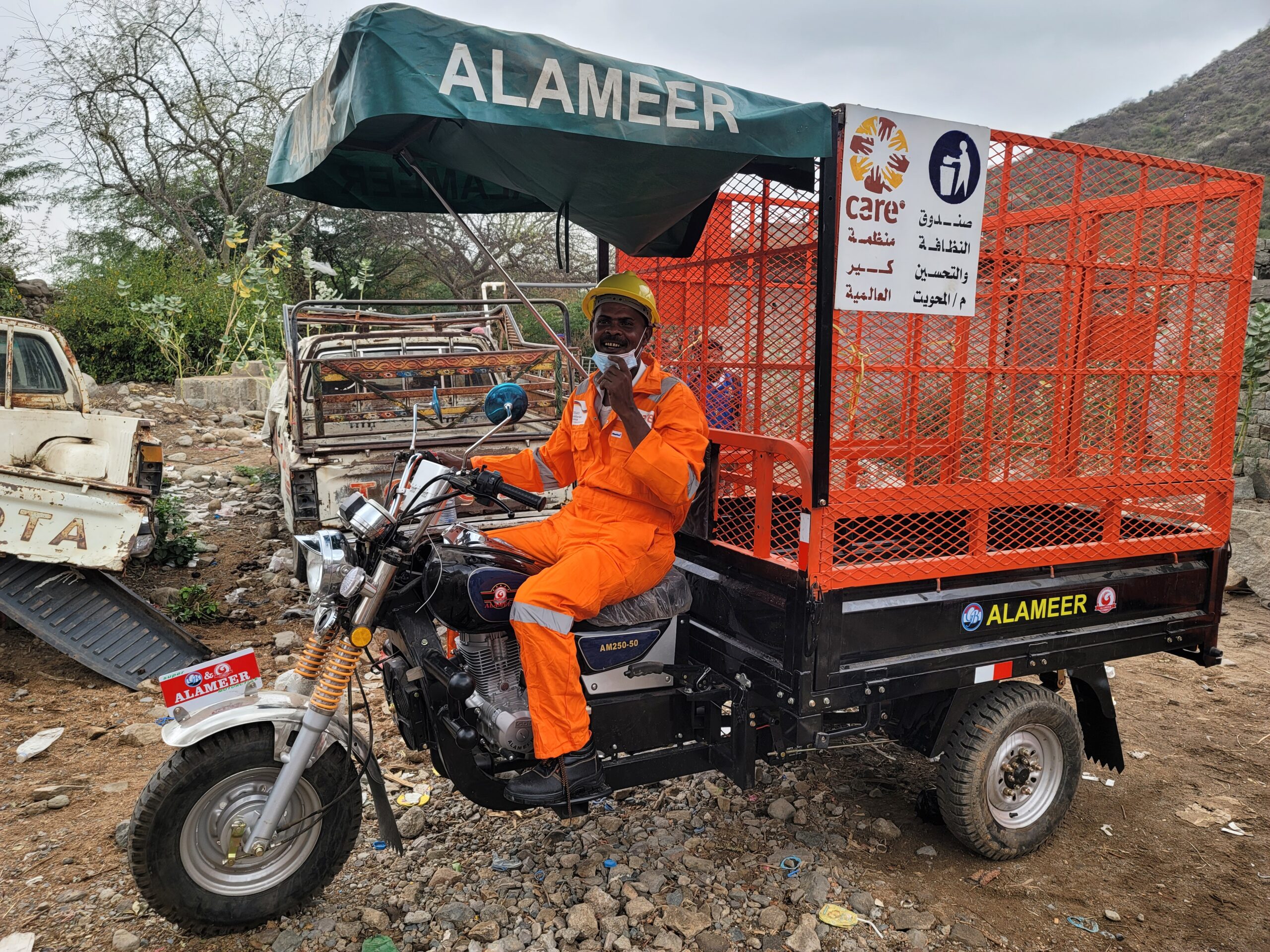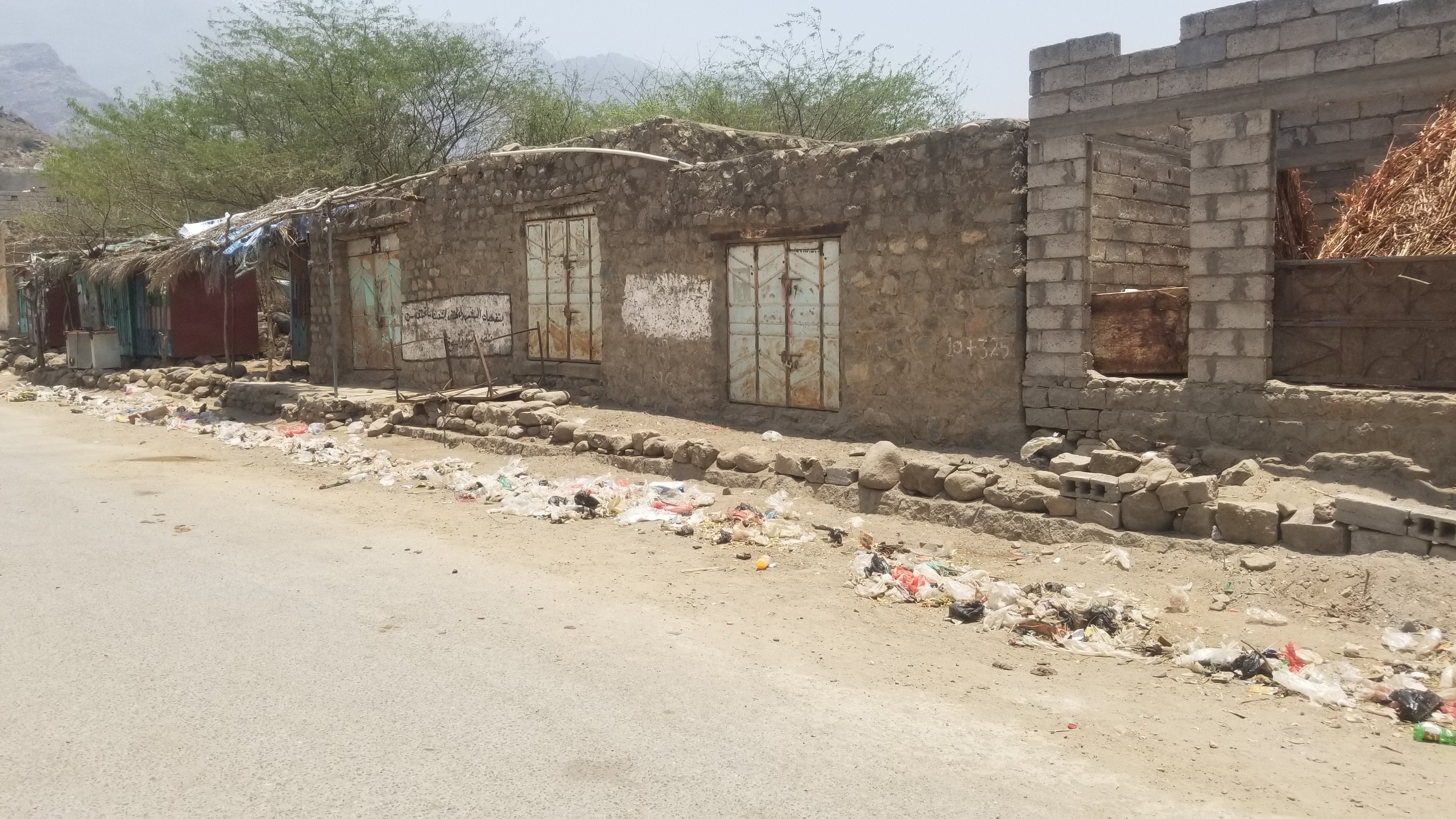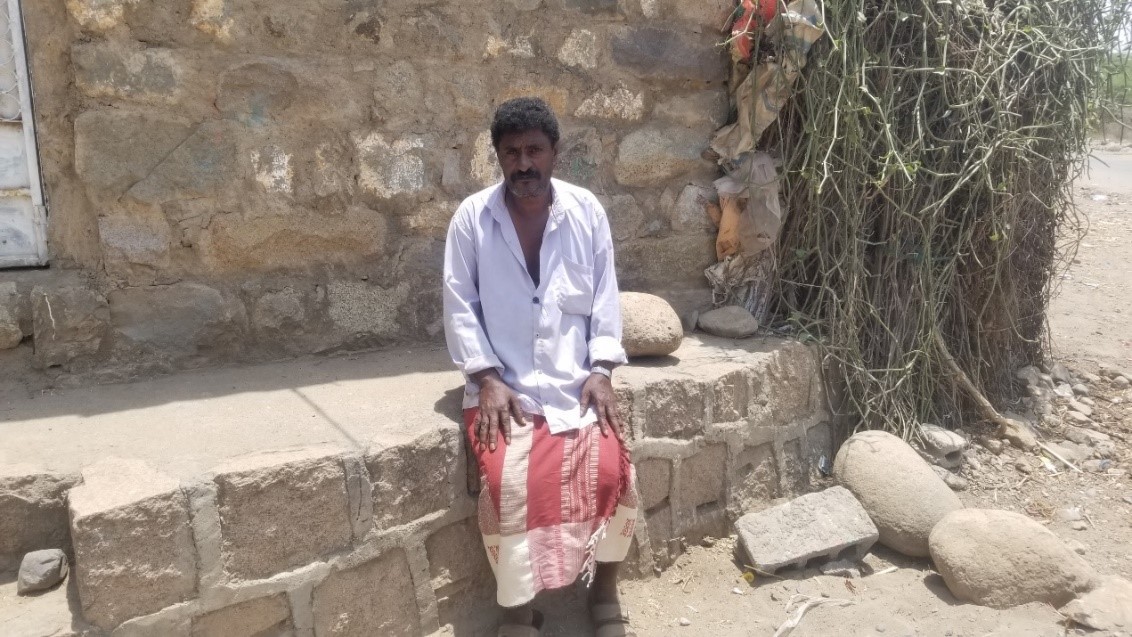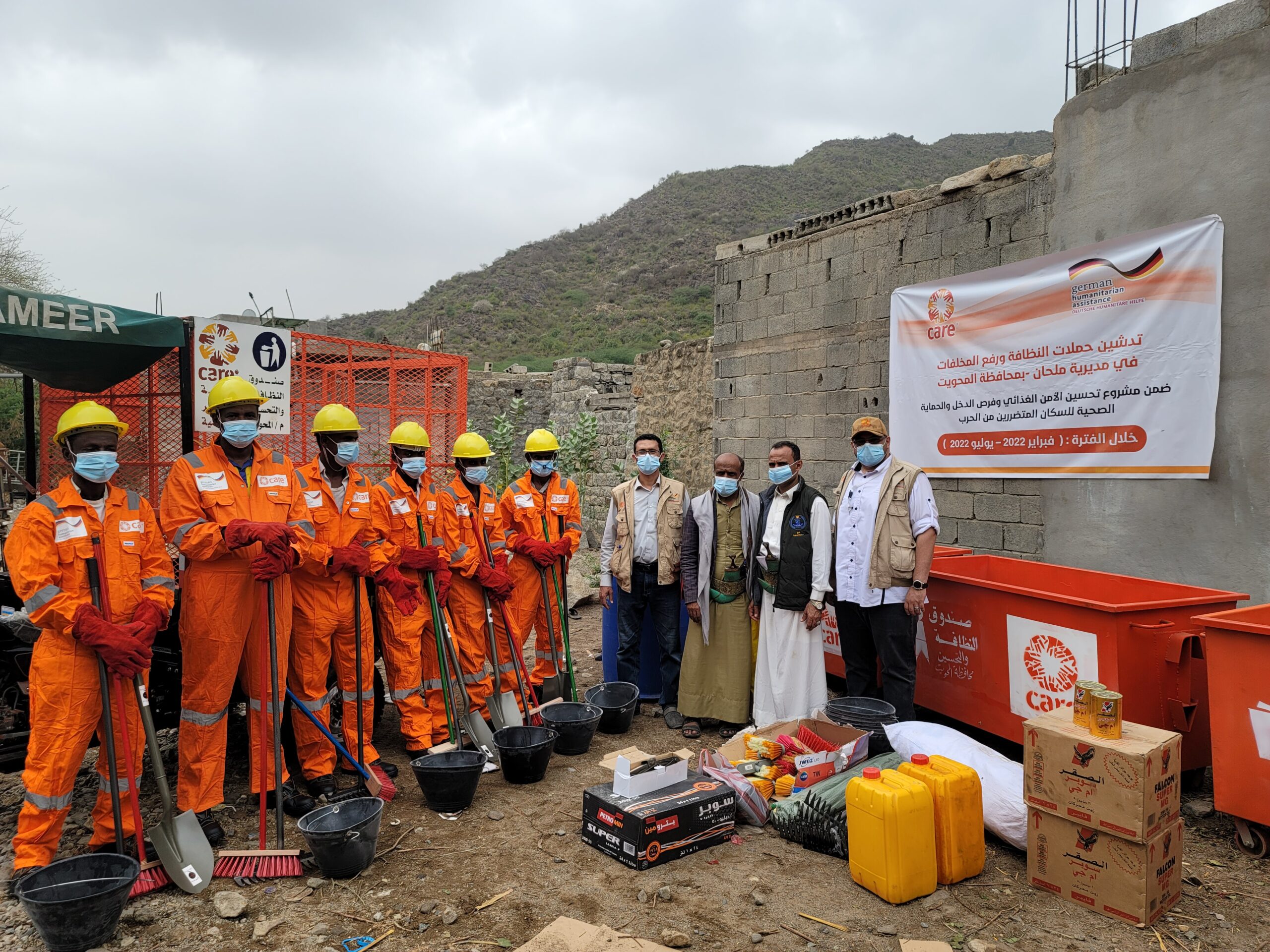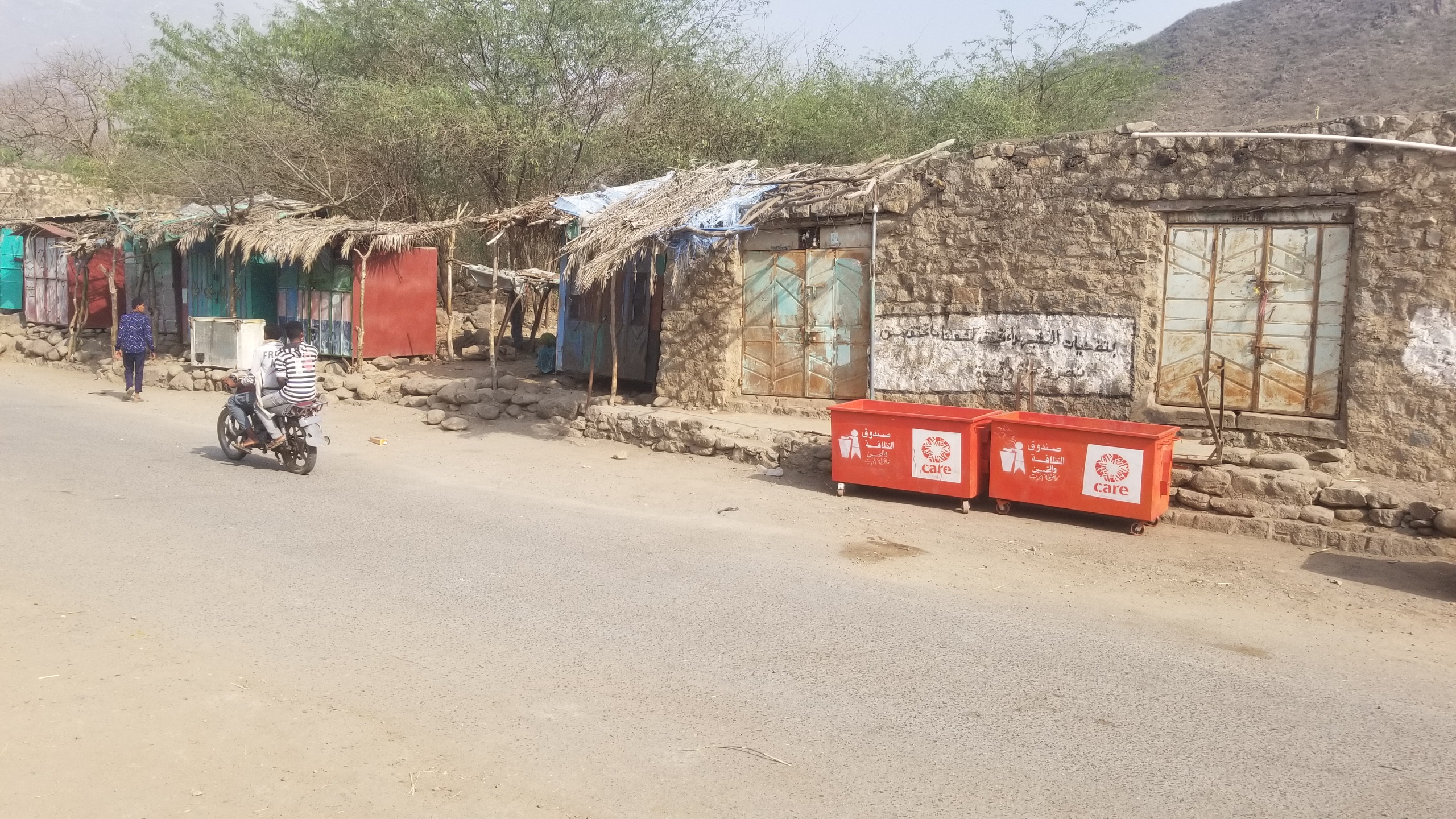Solid waste collection systems are suspended in many cities of Yemen due to either decline in revenue collection and non-availability of operational costs or challenges in the capacity of the local authorities.
In addition, many traditional waste disposal sites are not operational. As a result, the communal spaces are increasingly becoming dumping sites and such improper waste management can serve as breeding places for many vectors that pose a risk of vector-borne diseases and other serious threats to public health. Similarly, poor governance and lack of accountability in managing municipal solid waste, coupled with the rising trend of population growth, lack of awareness and inappropriate habits within communities are some of the reasons behind dysfunctional waste management across Yemen.
Poor sanitation remains a major public health risk. According to the Multi Cluster Locations Assessment (MCLA), only 29 per cent of the population said that garbage is collected through the public system, while 28 per cent buried and burned the garbage by themselves and 43 per cent responded that disposed garbage was never collected which has, in turn, posed public health risks.
“I have been in this profession for more than seven years and I am happy to serve the community, but lately this work became exhausting and hard because of the lack of incentives, tools, materials and the difficulty of collecting the garbage from various locations. Therefore, most of the waste management workers are unable to continue performing their duties. Our work became a real danger to my health because we work without any safety or protective clothing. Most of the workers here used to work barefoot,” says Ameen, 39, a waste management worker from Al-Mahwit Governorate to the northwest of Sana’a, Yemen.
